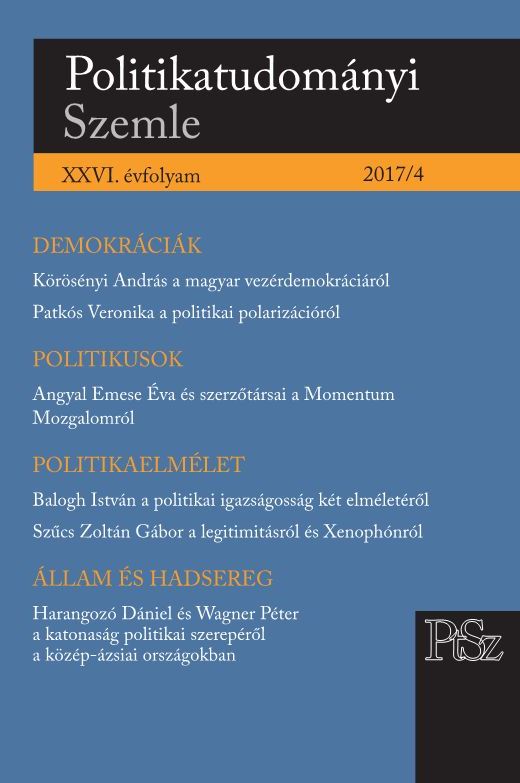Állam és hadsereg a posztszovjel Közép-Ázsiában
State and army in post-Soviet Central Asia
T he political and social role of the armed forces
Author(s): Dániel Harangozó, Péter WagnerSubject(s): Government/Political systems, Inter-Ethnic Relations
Published by: MTA Politikai Tudományi Intézete
Keywords: Central Asia; military and politics; civil-military relations; post-Soviet
Summary/Abstract: Relying on a typology proposed by Timothy Edmunds, Anthony Forster and Andrew Cottey we seek to explore the political and social role of the armed forces in post-Soviet Central Asia in three particular areas: regime defence, nation building and the economic role and activities of the military. Due to the authoritarian nature, with one exception, of all Central Asian states, our first research question focusses on the role of the military in supporting the authoritarian regimes of the region. During the Soviet period, the armed forces served a key role of political indoctrination and “nation building”. Moreover, there was widespread use of conscripts as a free labour force for various stateled economic (such as the annual harvest) and construction activities. Our second question concerns whether and to what extent these Soviet-era practices and traditions continue in the Central Asian successor states. One of the key conclusions of our research is that the authoritarian regimes of post-Soviet Central Asia rely on a widespread network of internal security and intelligence organizations instead of the regular military. Moreover, with some exceptions, there is limited use of the armed forces as a vehicle of nation building by the governments of the region, and they have a limited economic role and signifi cance compared to the Soviet era.
Journal: Politikatudományi Szemle
- Issue Year: XXVI/2017
- Issue No: 4
- Page Range: 133-152
- Page Count: 20
- Language: Hungarian

